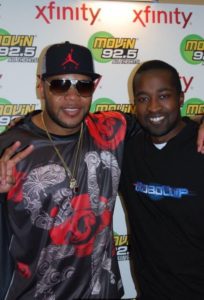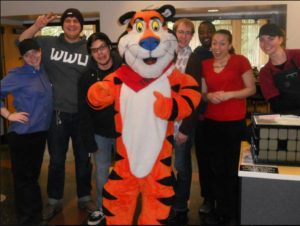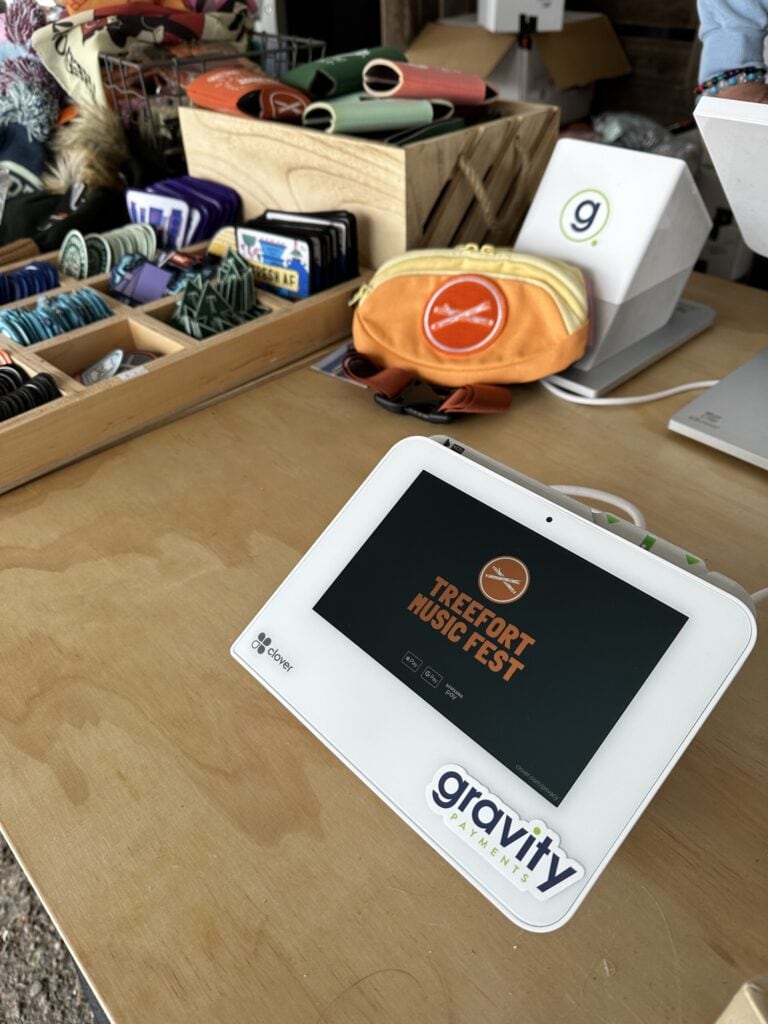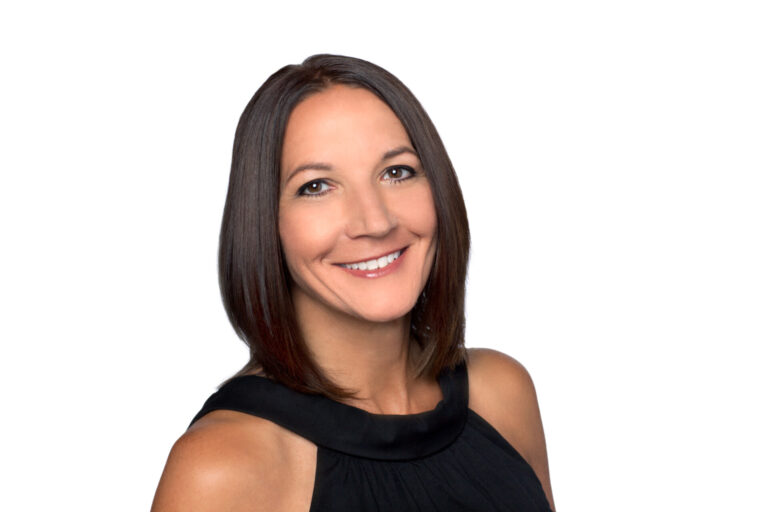Modern society delights in hating on Millennials. Although plenty of research has shown that this generation is worse off financially than their parents, despite being more educated and skilled, a stereotype persists that they are lazy, entitled, and expect success to be handed to them with a gold star and a participation trophy. If any Millennial defies that stereotype, it’s Yuri Prater.
Case in point: the average American holds ten jobs before the age of forty; Yuri has already held that many and he’s only twenty-seven. Among the many roles he’s held, he’s been a berry harvester, a radio-station promoter, a mortgage-loan administrator, and an actor in a haunted house–all before joining Gravity as an IT Specialist in May 2018.
Get the Gravity newsletter for the latest FAQs, tools, tips and tricks
This isn’t the career path Yuri planned. As a student at Western Washington University in Bellingham, Washington, he studied communications with the goal of one day becoming a radio DJ. “I really, really wanted to work on radio, growing up as a kid,” he says. “I listened to radio shows, like morning shows, all the time. I really enjoyed the creative aspect of it, the fact that you got people to laugh, you met all these interesting people, you traveled to all these interesting places, and you got to make the show yours. You got to personalize it. I really, really wanted to be able to control that type of creativity and my work environment.”
After he graduated, he got a job on the promo team at MOViN 92.5, a Top 40 station based in Bellevue. “I don’t know if you’ve ever gone to any type of event or festival and seen radio station tents where people wearing radio-station gear are standing underneath them? That’s what I did–pretending I was happy to be there when really I was wishing I could be anywhere else.”

Yuri with Flo Rida at an event for MOViN 92.5
It was a grunt job–like so many other grunt jobs–but Yuri assumed it was just the price he had to pay to eventually get the gig he wanted. As he learned more about the industry, however, he realized the path to becoming an on-air personality wasn’t so certain. “I remember talking to one of the on-air hosts and he said he did my job for ten years before he even got his shot to be on air.” Yuri was willing to pay his dues–getting coffee, staying late to cut audio, cleaning the studio, or whatever other unpleasant task was asked of him. But he didn’t see the point of doing this work if it wasn’t going to pay off in the long run. “It felt like radio was a volatile industry,” he says. “I saw people get fired for really no reason other than, ‘We want to go in a different direction.” And for me, it really became apparent that I needed something with stability.”
Yuri remembers the moment he realized he needed a change. “It was the day that the Seahawks played the Green Bay Packers for the NFC championship,” he recalls. “We had to wake up probably at about five o’clock in the morning to get down to Seattle for that game. And all we did was walk around the city putting up posters that said MOViN 92.5 on them. And it’s January, so of course it’s freezing and it’s also raining and we’re walking around in the cold and dealing with drunk fans. I just thought to myself, ‘Why am I doing this right now? What’s the point of me freezing my ass off for a career that I’m not 100 percent sure I’m going to be able to see all the way through or to get where I want to go?’”
It wasn’t that Yuri lost his passion for radio–he spent months debating whether he should leave the job or tough it out. He simply wasn’t willing to sacrifice his other goals for a shot at something that might turn out to be unfulfilling.
One of the goals he wasn’t willing to give up on was financial independence. As a child, Yuri had learned the importance of working for money from his parents. Growing up, he watched his mom, Kelly, an HR rep for the Social Security Administration, and his dad, Yuri, Sr., a nuclear medicine technologist, work hard to support him and his siblings. “My brother and I were latchkey kids,” he says. “Usually, one or both of my parents were gone by the time we woke up to get ourselves ready for school. When we got home, we had to let ourselves in the house and do whatever we needed to do to take care of ourselves until both of them got home. That’s just how we grew up. My parents took their work and their careers very seriously.”
The experience left an impression on Yuri, so when he was sixteen (the age at which it becomes legal to work in Washington State without a permit), he got his first job at Wild Waves Theme and Water Park in Federal Way, close to where he grew up. “If you’re growing up in Federal Way, you work there at some point in your life,” Yuri says.
Unfortunately, being a water park in the Pacific Northwest, Wild Waves was only open during the summer, so Yuri had to look for new work when the school year started. During his senior year of high school, he worked as a courtesy clerk at Fred Meyer, a chain of regional superstores. He quit that job a year later in order to focus on his education, but found a new job at a campus dining hall at the start of his sophomore year. Except for school vacations and summers (during which he often went back to work at Wild Waves), he continued to work ten to twelve hours per week in that dining hall until he graduated.
Working in any food service job can be a thankless task, but Yuri remembers his time at the dining hall as one of community, appreciation, and fulfillment. “I felt good when we had a good day,” he says. “The dining hall where I worked was considered the best on campus, not just because of the quality of the food that we served, but for the service itself. We were fast. We had fresh produce everywhere, we were quick to clean up. We just functioned as a unit really well. That’s because we were all trained really well. We all were there to support one another. There was a sense of good community there, and I think that’s something that workplaces need more of.” Yuri is still friends with several of the people he met at that job.

Yuri (third from right) at the campus dining hall where he worked through most of college
Not all jobs were this pleasant, but he credits them with giving him experience and contacts that would serve him well down the line. They also taught him a few life lessons that he otherwise might not have learned until much later–like how to communicate with difficult people. “I think every person in America needs to work a food service or retail job at some point in their life,” he says. “I think we would be a lot nicer to each other.”
Working also gave him financial freedom. Even though the jobs he worked through school paid little more than minimum wage, he was able to afford all of his expenses, which was good considering that his parents had stopped giving him money as soon as he started working. “Before we got our first jobs, my brother and I were getting an allowance,” Yuri recalls. “It was like sixty bucks a month, and you could use it for whatever, but that’s it. We weren’t allowed to ask for money for pretty much anything else unless it was something important, like something for school that we couldn’t afford. That was my parents’ way of giving us a chance to learn some money management.”
For Yuri, bringing home his own paycheck transformed his outlook on the world. “It changed the way I view money and working,” he says. “The moment that sticks out for me is when I really wanted an Xbox. My parents weren’t going to buy one for me, so I was thinking about buying one myself and I was like, ‘Man, are they going to allow me to do this?’ Then I thought to myself, ‘Wait, if I’m not asking them for money, why do I need to ask them to buy one? I’ve got my own debit card. I could go to the store and pay for it myself.’”
That outlook was what helped him realize that radio might not be the best career path for him, especially since he’d been holding down two other jobs–in the home theater department of a local Best Buy and as the office administrator at a home loan company–while he was at the station. In October 2015, he left 92.5 after about a year and a half and turned his attention to his other pursuits.
Less than a year after Yuri started at the loan office, his manager informed him that he’d have to get a loan license in order to continue working there. Yuri took the license exam three times over the course of a few months, but because he didn’t have ample time to study or previous experience in the industry, he failed. “It was like trying to teach myself a foreign language in a couple of months,” he says. He was fired from that job in February 2016.
It took three months for him to find another office job, and the experience clarified his need for stability and job security. “That three months was very difficult because I had a large amount of money saved, and spent almost all of it paying bills, making my student loan payments, paying for a trip to the dentist, and just paying my bills,” Yuri says. “I told myself that I can’t be in that position again.”
Around the same time, he almost lost his job at Best Buy because they didn’t have enough hours for him to work in his department. Luckily, an opportunity opened up to join the Geek Squad, and, even though he had no previous experience in computer repair, he jumped at the chance to stay employed. “I just took the opportunity and ran with it. I started learning, studying on my own so that I could come in and work with a better idea of the issues that clients came in with on a day to day basis. I studied more, listened, and asked questions with the repair techs that were there.”
Once again, his hard work paid off. After three months of an excruciating job search, Yuri was hired as an account processor for a 401(k) plan administrator. After a few months, he told his boss that he’d been gaining experience in IT, and she encouraged him to apply his new skill set at the office. “She told me to talk to the networks systems administrator there because I think at the time the IT team was only two people. He and I had a discussion, and he and the other members of the team were super excited to have someone who actually wanted to learn about computers and how to be a technician in an office environment.”
His transition to IT ultimately led him to Gravity where he continues to learn as much as he can while he helps the other two members of the department keep our 200-person team, including dozens of remote employees, up and running. He’s also pursuing a master’s degree in computer science so he can expand his knowledge base, take on new responsibilities, and create a new career path that has more long-term potential and stability. “If you get your degree in computer science, you can essentially write your own ticket to any company that you want,” he says.
There’s no doubt that Yuri is excited by the earning potential and job security of a career in technology. But he’s also excited by the freedom to choose a path that suits his tastes, talents, and interests. Yuri believes that work should be a source of pride and empowerment, and that no job, regardless of the salary, is worth sacrificing your happiness or dignity.
“There’s something about work and being proud of what you do,” he says. “And there’s just a lot of growth in terms of the development that comes with working for a company that you appreciate or working a job that forces you to problem solve or forces you to actually be creative. There’s just something about that that you don’t get anywhere else in your day to day.”
It’s a view he shares with many of his fellow Millennials but that he learned from members of an older generation: Kelly and Yuri Prater. “My parents always told us that if we don’t feel appreciated somewhere or if we’re unhappy with the work, we should ask ourselves, ‘Why are we still here. What’s the point?’”
Written by Brooke Carey, Content Editor and Proud Millennial
Humans of Gravity is a profile series designed to highlight the unique individuals who comprise our team. Gravity Payments believes in celebrating our shared humanity by letting employees bring their full selves to work. Interested in joining this amazing group of people? Check out our Careers page for the latest opportunities.



